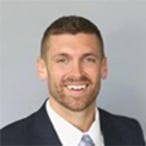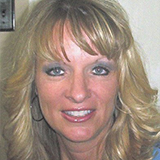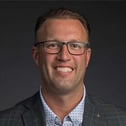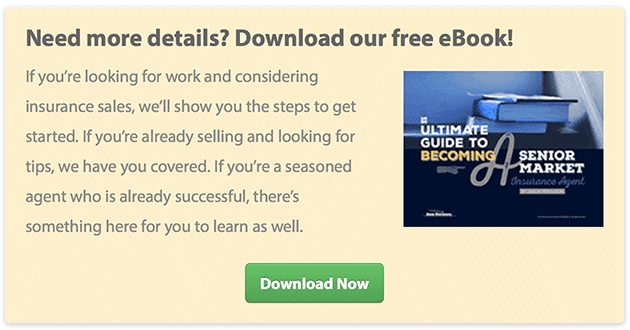Being an independent insurance agent in the senior market can be very lucrative, which is one of the huge draws for individuals looking to join the industry.
However, the failure rate? It's dismal. Most agents starting out will quit before their first year is over.
To help out the newbies, we've talked to 3 experienced and highly successful insurance agents. In an industry full of trade secrets, they were willing to share some key bits of advice that you won't find anywhere else!
Getting Through the First Year

The first year is tough, but if you can make it through, it's all uphill from there. Chase Gruening, an independent senior market agent with nearly 600 clients, says, "You have to think long-term. In that first year, there's no renewals and tons of rejection."
By the second year, you get an income boost from renewals, and you're more immune to the rejection that's practically guaranteed – no matter how long you've been in the business.

Amy Ferrari of Illinois Valley Insurance Agency says that the key to making it past your first year and beyond is simply observation.
"Watch what the top salespeople are doing, and what they are not doing. Learn from their success stories and their horror stories," she explains.
In fact, you can start your learning process here:
- How Successful Insurance Producers Are Selling More Per Client
- 10 Insurance Experts Give Their Best Advice for Independent Agents
- Why An Agent Started Using the CNA After 33 Years
Ferrari also advises all independent agents to find a great team of people who will support you, such as an FMO.

For Michael Sams, a $1 million senior market producer and sales trainer, the key to handling rejection is understanding the statistics around it. According to Marketing Donut, 80% of prospects say "no" at least 4 times before they ever say "yes."
And really, that statistic is pretty encouraging. If you continue following up and connecting with prospects, your chances of success skyrocket.
But still, rejection is to be expected most of the time.
"When I first started, the goal was 25, 5, and 1. Out of every 25 calls I made, I'd try to turn 5 of those into an appointment. From there, I'd try to make one sale," says Sams.
By changing your mindset and expecting more "no's" than anything else, it's much easier to deal with the rejection.
Gruening says that during that first year, you should focus on being out in the field as much as you can. "I'm a big believer in learning the most from your failures. Honestly, that first year is a lot more failure than success in my opinion," he explains.
But once you can get past those initial failures, magic starts to happen. Your income starts growing, referrals from past successes start to roll in, you start developing relationships with your clients, and you realize why there are so many successful agents out there who love this profession!
Related Reading: Step-by-Step Guide to Getting Started In Medicare Sales
Finding Leads
"I think not being able to find leads is a big excuse honestly," says Gruening.
And he has a point. Over ten thousand baby boomers celebrate their 65th birthday every day. There are over 50 million seniors on Medicare right now.
There's certainly no lack of customers.
Gruening has 3 lead generation methods that all work a little differently:
- Knocking on doors
- Phone calls
- Mailers
Even though door knocking is time consuming, Gruening still finds a lot of value in it. "I don't need to door knock anymore, but I still do it. I feel like the only way to stand out to people turning 65 is to actually show up on their doorstep," he says.
People turning 65 get loads of junk mail and email, and every other phone call is someone trying to sell them a Medicare product. But Gruening says that no one is actually coming to them: "I've heard so many people say that no one comes to their door but they get a thousand mailers."
As for phone calls, Gruening advises to only call people over 65. He purchases over 65 lead lists (if you'd like a recommendation, give us a call).
Ferrari says that the best way to get leads won't cost you a dime: "The best form of advertising is word of mouth!"
Encouraging every single of your clients to refer their friends and family is an effort well spent. In addition, providing superior customer service will leave an impact on your clients, but we'll cover more on that shortly.
Choosing What Products to Sell
When you're first starting out, it's critical to decide what products you're going to sell. Why? Sams says it's really hard to change once you're in a comfortable routine.
He explains, "I just learned Medicare Supplements when I first started and stayed away from everything I wasn't comfortable with. If I were to go back, I'd stick to the proven system I'm using now and become fully educated on all product lines to better serve the client. When you better serve the client, you sell a heck of a lot more."
Gruening agrees: "If I would’ve known what I know now, I would’ve asked a lot more questions in terms of cross-selling."
The hangup for many new agents is that there's just not a lot of training available. Sams says, "There's so much training available for State Farm agents, for Country company agents... if you're captive, you really don't have to worry about training."
That's the main reason we decided to start the All-Star Program, which includes comprehensive training and mentorship.
"You want to get plugged in with a training program and a mentor," says Sams. "There's no need to stumble around and try to reinvent the wheel. What makes us all successful is the same thing that'll make you successful."
Gruening says that selling multiple products is as simple as asking the questions on the Client Needs Assessment.
"When you ask those questions, you can immediately tell if it’s a concern to somebody. When you sense that, you know it's a concern you need to address. If they don’t want to buy it, that’s their prerogative," he says.
Ultimately, if you don't understand the need for the product, and you don't ask, you'll never cross-sell.
"Too many agents think they'll come across as greedy," says Gruening. "All you’re doing is asking a question. If there’s any indicator that there’s a need, try to solve that problem."
Customer Service and Sales Tips
Ferrari explains that new agents should brush up on their customer service skills. After all, the senior market insurance business is very competitive, and you have to have something that sets you apart. "You always want to leave a prospect or a client feeling good about the interaction," she says.
One of the best ways to give excellent customer service is to go beyond the small talk. Ferrari advises to ask about family, work, or other interests that are more personal and that can help you establish a genuine relationship.
Gruening says that when he first started, he made the mistake of thinking that because certain insurance products were too expensive to him that they'd be too expensive to other people.
"Especially being a young kid – thinking of paying $100-$150 in insurance... I don’t know. I just thought it was too expensive, but that’s not for me to decide. It’s just asking a question and presenting a solution," he explains.
In addition, he believes in having the product on yourself if you’re going to sell it, which is why he has a cancer, heart, and stroke policy on himself. "I sell plenty to make up for that personal premium. I just can’t justify selling something and not having it myself," he says.
Sticking to a Routine
When you're your own boss, it's a blessing and a curse. As an independent agent, you really don't have to do anything if you don't want to. No one is pushing you – you have to be your own motivator.
"It was so doggone easy to float with the wind," says Sams. "I struggled with this big time when I first started. I got so frustrated knocking on doors that when someone treated me poorly, I wanted to quit. And then I realized I could! And I'd just stop for the day."
Sams recommends figuring out a routine, setting a daily schedule, and having some sort of accountability to keep you on track.
Having someone you can team up with can help. You can laugh about the failures together rather than getting discouraged, you can learn from each other, and the competition helps motivate you. If this is something you're looking for and there's no opportunity like that in your area, that's part of the All-Star Program.
Use Technology to Your Advantage
If you're an insurance newbie, you actually have one of the biggest advantages of all: technology.
"Especially if you're younger, you know how to use the technology," says Gruening. "I talk to older agents all the time – it takes me 10 minutes to complete 3 apps on the Aetna portal, while it takes an older agent 45 minutes to do it on paper. As younger agents, technology is the biggest advantage we have."
Gruening says he does 100% of his work on his computer. He can pack up his entire office into a box, and he can sell anything, anywhere.
Agents with larger books of business can benefit from a CRM like AgencyBloc. For now, Gruening is able to manage his clients in an excel spreadsheet. He has a tab for clients, a tab for their policies, and a tab for his commissions. He says he can look up anything he wants to know about any of his clients at a moment's notice.
However, he advises to not get too carried away with the tech.
"New agents make the mistake of having too much stuff at first. If you can simplify what you’re using, it makes your mind that much more simplified," he explains.
Getting Started as a New Agent
If you're a new agent just getting started, here are a few resources to help you out.
In addition to the eBook, the All-Star Program can provide all of the training and mentorship you need to be successful, especially in your first year.
And as always, we're just a phone call away. Give us a call or drop us a chat (chat is only available during regular business hours). We'd love to see how we can help you get your feet on the ground!
Related content:
- The Beginner's Guide to Selling Medicare Supplements
- 11 Most Frequently Asked Questions By New Agents
- 6 Reasons New Independent Insurance Agents Fail
- Do Independent Agents Really Need a Field Marketing Organization (FMO)?
- New Year, New Career: How to Break into Senior Market Insurance Sales
- New Agents: How the Contracting & Appointment Process at New Horizons Works
.jpg?width=700&height=378&name=NH-3-Experienced-Insurance-Agents-Give-Advice-for-Newbies%20(1).jpg)





